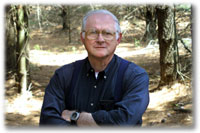For most of us living in the north, below zero weather is
merely an inconvenience or an annoyance.
But we complain anyway.
Let me take you back to the home farm in central Wisconsin
in 1946 and what it was like for my father on a morning when it was twenty-below
zero. He would crawl out of bed to a
bedroom that was frigid as the wood stoves heating the house had gone out
around midnight. He lit the kerosene
lamp that stood by his bedstead, pulled on his clothes, and walked to the
dining room where he started the fire in the dining room stove. Then to the kitchen where he started the
kitchen cook stove. Our drinking water,
in a water pail as we had no indoor plumbing, had more than an inch of ice on
it. He would place the water pail
directly on cook stove, so the ice would thaw and my mother would have water to
make coffee for breakfast.
In between fire-starting, Pa woke me up by rapping on the
stove pipe leading to the frigid bedroom above the dining room.
With both stoves going, Pa pulled on his wool barn coat,
heavy woolen cap, and six buckle boots.
He lit the barn lantern and headed for the pump house, where he started
the fire there—the one that kept our pump from freezing. Then he walked the narrow path to the outside
cattle tank, covered with ice. He
started the wood burning tank heater that would melt the ice so the cattle
would have water when they were let out to drink later in the morning.
Next he walked the narrow, shoveled path through the snow to
the potato cellar, a building built in the side of the hill just beyond the
chicken house. Here is where we stored
our fall crop of potatoes as we waited for the price to come up a little before
selling. A stove in the potato cellar
kept the potatoes from freezing and Pa started this next.
It was only now that he was ready to begin the morning
milking. Cows that we milked by
hand. By this time he expected that I
would show up in the barn to help.
Not once did I hear him complain about the cold or about all
the fire starting. It was winter after
all, and that is what you did when you lived on a farm in Waushara County in
1946.
THE OLD TIMER SAYS: Sometimes cold winter weather has to be
endured; complaining doesn't help.
COMING EVENTS:
January 28, 5:00 p.m.
TV show, “Live at Five,” Channel 3 Madison. The Quiet Season.
February 8, Sat. Garden Expo, Madison Alliant Center, 2:15
p.m. Garden Wisdom presentation.
February 9, Sun. Garden Expo, Madison Alliant Center, 10:15
Three Sisters Garden presentation.
February 23, 2:00 p.m. Gard Theater, Spring Green. Showing of Winter on the Farm with questions
and discussion. Followed by book signing
of THE QUIET SEASON. Sponsored by Wisconsin Public TV and Arcadia Bookstore.
For those interested
in purchasing DVDS and Books from the Patterson Memorial Library in Wild Rose,
Wisconsin (a fund raiser for them):
A Farm Winter with Jerry Apps, DVD $20.00
shipping included (An hour-long documentary that has aired on public
television.)
The Quiet Season by Jerry Apps $25.00 shipping included (Hardcover book about winter memories—A Farm Winter is based on this book.)
The Bundle: A Farm Winter DVD and The Quiet Season hardcover book - Save $5.00 only $40!
Order from:
Patterson Memorial Library
500 Division St.
Wild Rose, WI 54984
barnard@wildroselibrary.org
www.wildroselibrary.org
920-622-3835
500 Division St.
Wild Rose, WI 54984
barnard@wildroselibrary.org
www.wildroselibrary.org
920-622-3835
